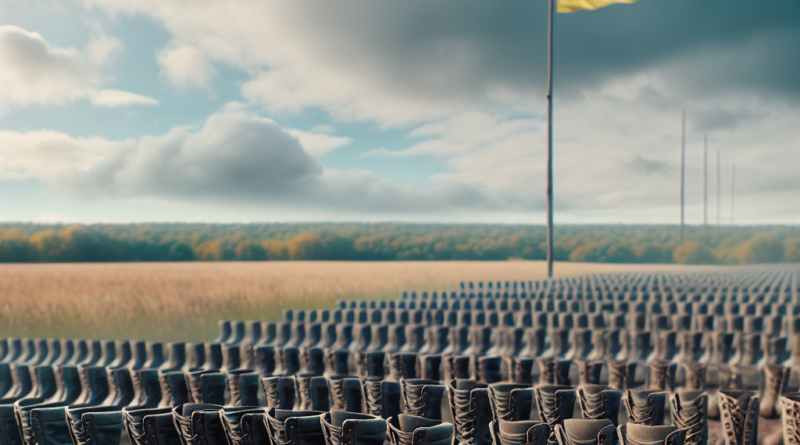Thousands of Soldiers Flee the Ukrainian Frontlines
Recent Surge in Desertions Among Ukrainian Soldiers
In recent months, a significant wave of desertions has been observed among Ukrainian soldiers engaged in the conflict with Russia.
According to various sources, including the Kyiv Post, thousands of soldiers have reportedly abandoned the front lines, thereby violating military law.
Experts identify two primary causes for this troubling trend: harsh living conditions at the front and, perhaps less obviously, inadequate training.
These two issues contribute to an already dire situation for the military.
Legal Consequences for Desertion
The problem of desertion is so widespread that even the laws enacted in January 2023 have failed to curb it.
President Zelensky signed a controversial measure last year that intensified penalties for desertors, setting prison terms of up to 12 years for desertion and 10 years for disobedience.
The Ukrainian state attorney revealed that since the onset of the Russian invasion in February 2022, over 60,000 legal proceedings have been initiated against soldiers accused of desertion.
Alarmingly, nearly half of these cases were registered in just the last year, indicating a growing concern for the Ukrainian military.
Life on the Front Lines
The harsh conditions on the front lines are a significant factor driving soldiers to flee.
As highlighted by the Kyiv Post, many have been in continuous combat since the conflict began, with only brief periods of leave — typically ten days twice a year.
Some have not seen their families for over a year, worsening morale among the troops.
Military analyst Anders Puck Nielsen pointed out that constant exposure to danger breeds fear and exhaustion among soldiers.
According to Nielsen, inadequate training amplifies this feeling of vulnerability, as many soldiers leave after just 30 days of preparation, which is woefully insufficient for such a complex conflict.
Inadequate Training
Another troubling aspect highlighted by Nielsen is the low level of training received by Ukrainian soldiers, which contributes to desertions.
Those who undergo merely 30 days of training are ill-prepared for the realities of warfare.
Testimonies reveal shortages in ammunition and equipment at training facilities, with some soldiers receiving only 20 rounds for practice, severely limiting their learning experience.
Endless Mobilization Challenges
In response to troop shortages, President Zelensky introduced a new mobilization law in April that not only increases the number of recruits but also stiffens penalties for military non-compliance.
Analysts warn that the effects of this new law will not be immediate, and it will take time before any tangible results are seen on the battlefield.
Compounding the issue, this new law does not set a time limit for military service, meaning many soldiers could be stuck serving indefinitely.
This situation breeds a sense of injustice, pushing soldiers toward what might seem like the only escape: severe injury or death in battle.
A War of Attrition
The rising tide of desertions and mobilization issues indicate that the Ukrainian military is increasingly involved in what resembles a war of attrition.
Experts stress the necessity for an effective rotation system that allows soldiers to alternate between the front lines and home, mitigating the unsustainable pressures they currently face.
As highlighted by Nielsen, “It’s a war of attrition where both sides continue fighting endlessly.
This situation will be increasingly tough for both nations.” In the future, a distinct law may be required to clearly outline the conditions under which soldiers can return home, alleviating some of the pressures currently experienced by the troops.
In August, the Ukrainian parliament enacted a measure to decriminalize the first instance of desertion, allowing soldiers to return to their units without penalties, provided their commanding officer approves their return.




